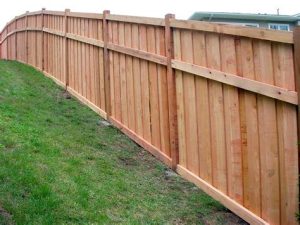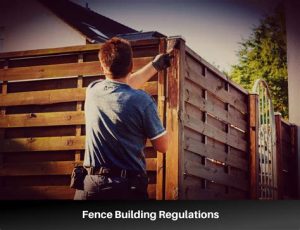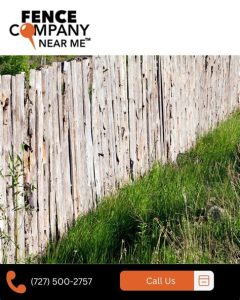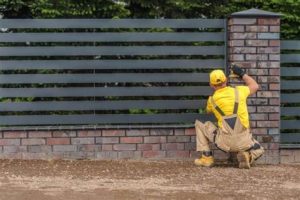Discover essential tips on local fence regulations, selecting the right fence, professional installation, maintenance, and enhancing property value with compliance.When it comes to enhancing your property, installing a fence is a popular choice for both aesthetics and security. However, navigating the complexities of local fence regulations can seem daunting. Yet, understanding and complying with these rules is crucial not just for avoiding hefty fines but also for reaping long-term benefits that can enhance your investment. This blog post delves into the various aspects of fence regulations, from choosing the right type of materials and ensuring professional installation to the importance of regular maintenance. We’ll also explore how compliance can significantly increase your property value over time. Join us as we unpack the essential steps to not only fence in your yard but also to secure your peace of mind and investment for years to come.
Understanding local fence regulations
When it comes to fencing, understanding local fence regulations is crucial for any homeowner. These regulations are set by municipalities to ensure that fences are built in a way that respects property lines, safety standards, and community aesthetics. Ignoring these regulations can lead to disputes with neighbors, fines, or even the removal of your fence.
To start, it’s essential to research your local regulations before choosing your fence design. Most areas have specific rules regarding the height, material, and placement of fences. For instance, some communities may allow a maximum height of 6 feet for privacy fences, while others might restrict certain materials that are considered unsightly.
It’s wise to consult with your local zoning office or community association to obtain the necessary permits and understand the requirements. This not only saves you from potential headaches but also ensures that your fence is in compliance with local laws, contributing to the overall harmony of the neighborhood.
Choosing the right type of fence
When it comes to fencing, selecting the right type can significantly impact both the aesthetics and functionality of your property. It’s essential to consider various factors such as durability, privacy, and style before making a decision. Each type of fence has its unique benefits that cater to different needs.
- Wood Fences: Known for their natural look, wood fences provide excellent privacy and can be customized in various styles. However, they require regular maintenance to prevent rot and warping.
- Vinyl Fences: A durable option that is resistant to weather changes and requires minimal maintenance. Vinyl fences come in various colors and styles but can be more expensive upfront.
- Chain Link Fences: Cost-effective and easy to install, chain link fences offer security without obstructing visibility. They are ideal for large properties or as temporary boundary markers.
- Metal Fences: These fences, including wrought iron and aluminum, are highly durable and can add a touch of elegance to your property. While they are more expensive, they require minimal maintenance and offer long-term value.
Choosing the right type of fence not only enhances your property’s appearance but also addresses your specific needs, such as security, privacy, and compliance with local regulations. Make sure to weigh the pros and cons of each type to ensure you make an informed decision that will stand the test of time.
Investing in professional installation
When it comes to fence installation, many homeowners often consider a DIY approach to save on costs. However, investing in professional installation can bring significant benefits that make it well worth the expense. Here are some key reasons why you should consider hiring professionals for your fencing project.
First and foremost, professional installers bring a wealth of experience and expertise to the table. They are educated on local codes and regulations, ensuring that your fence complies with any required standards. This not only protects you from potential fines but also saves you from the hassle of making adjustments later. Additionally, experienced installers have the right tools and equipment to handle various types of fencing material, ensuring that the job is done efficiently and correctly.
Secondly, hiring professionals can save you both time and stress. Fence installation can be a labor-intensive process, and without the right skills, it can quickly become overwhelming. Professionals can complete the installation much faster, allowing you to enjoy your new fence without the headache of managing the process yourself. Furthermore, they often offer warranties on their work, giving you peace of mind that your investment is protected.
Lastly, a well-installed fence can significantly enhance the aesthetic appeal of your property. A professional installation ensures that your fence is not only functional but also contributes to the overall design and landscaping of your home.
Maintaining the fence over time
Maintaining your fence is essential for ensuring its longevity and aesthetic appeal. Regular maintenance not only helps prevent costly repairs but also keeps your property looking its best.
- Regular Inspections: Schedule periodic inspections of your fence to identify any damages or issues early on. Look for things like rot, rust, or loose boards that need addressing.
- Cleaning: Keep your fence clean by removing dirt, debris, and vegetation that may accumulate over time. A gentle wash with water and mild soap can keep it looking fresh.
- Protective Treatments: Apply protective treatments suitable to your fence type. For wooden fences, stain or sealant can protect against moisture and UV rays, while metal fences may require anti-rust coatings.
Neglecting your fence can lead to serious problems down the road, such as structural damage or even safety hazards. Therefore, take the time to invest in its upkeep.
Not only does proper maintenance extend the life of your fence, but it can also enhance the overall appearance of your property. A well-maintained fence reflects positively on your home, contributing to a pleasant neighborhood and increasing curb appeal.
In conclusion, making fence maintenance a priority pays off in the long run. By following these simple guidelines, you can ensure your fence remains a strong and attractive boundary for years to come.
Increasing property value with compliance
When it comes to real estate, first impressions matter significantly. One of the most effective ways to enhance the curb appeal of your property is by installing a fence that adheres to local regulations. Not only does compliance with fence regulations ensure safety and functionality, but it also helps in increasing property value.
The presence of a well-constructed and aesthetically pleasing fence can significantly influence potential buyers. According to various studies, properties with compliant fences tend to sell for more than those without. This is primarily because a professional-looking fence conveys a sense of care that indicates the homeowner has taken the time to follow regulations and maintain their property.
Moreover, a compliant fence adds to the overall landscape design, creating a harmonious look that appeals to buyers. Whether it’s a charming picket fence or a modern privacy fence, the right type of fencing can boost your property’s appeal and reflect pride in ownership.
Frequently Asked Questions
What are fence regulations?
Fence regulations are legal guidelines and standards set by local governments or homeowners’ associations that dictate the height, materials, and location of fences on properties.
Why is compliance with fence regulations important?
Compliance with fence regulations is important to avoid potential legal disputes, fines, and to ensure that the fence does not obstruct views or create safety hazards.
What are some long-term benefits of complying with fence regulations?
Long-term benefits include maintaining property value, promoting neighborly relations, and ensuring safety for pets and children.
How can non-compliance with fence regulations affect property owners?
Non-compliance can lead to removal of the fence, financial penalties, and conflict with neighbors or local authorities.
Do fence regulations vary by location?
Yes, fence regulations can vary significantly by location, so it’s essential for property owners to check local laws and HOA rules before installation.
What are common types of restrictions found in fence regulations?
Common restrictions may include maximum height, allowable materials, boundary line stipulations, and requirements for visibility at street corners.
How can property owners ensure that they comply with fence regulations?
Property owners can ensure compliance by consulting local building codes, obtaining necessary permits, and consulting with professionals if needed before erecting a fence.





